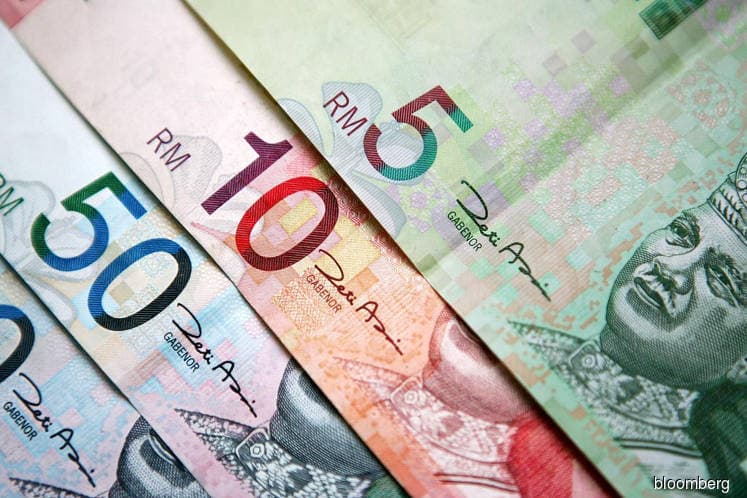
This article first appeared in Personal Wealth, The Edge Malaysia Weekly on October 30, 2017 - November 5, 2017
Almost anyone can fall prey to dubious schemes that channel their money towards money laundering and terrorism financing activities. Thus, it is important to take extra precautions, especially in the current fraught environment, says BAE Systems Applied Intelligence’s Divya Khangarot.
These days, illicit activities — which involve almost US$2 trillion a year — are becoming more complex and harder to trace, says Divya, who is the defence and security firm’s vice-president of financial crime and compliance sales in Asia. “Today, it is estimated that money laundering is equivalent to the fifth largest global economy at 3% of the global gross domestic product.”
She points out that not all who are involved in such activities do so knowingly. “You could be unwittingly facilitating these transactions.”
Divya says those who have been preyed upon (often referred to as mules) end up being a channel for the movement of unaccounted money. “If you have shared your identity card with someone, whether knowingly or unknowingly, and your identity is used to conduct fraudulent activities such as acts of terror or money laundering, then you are indirectly associated. More often than not, these people face criminal charges and even jail time.”
Citing a cyberheist where US$81 million was stolen from Bangladesh Bank’s account at the Federal Reserve Bank of New York, she says this occurred because the account number was shared among people. In February last year, hackers breached Bangladesh Bank’s systems and used the SWIFT financial messaging network to order the transfer of nearly US$1 billion from its account. SWIFT, or the Society for Worldwide Interbank Financial Telecommunication, is the international money transfer system that banks use to move billions of dollars daily between themselves.
While the Federal Reserve Bank of New York rejected most of the transfer requests, it fulfilled some of them, resulting in US$81 million being transferred to bank accounts in the Philippines. The money was quickly withdrawn and later disappeared in the country’s huge casino industry, according to Reuters.
“It is a little unfortunate, but we noticed that this happens because of the lack of awareness and education,” says Divya.
Financial institutions are required to undertake processes such as Know Your Customer (KYC), Know Your Customer’s Customer (KYCC), Ultimate Beneficial Ownership (UBO) and Customer Due Diligence (CDD). Individuals should employ similar safeguards, says Divya.
“As an investor, you should be aware of what you are doing and with whom you are doing business, as well as the directors and beneficial owners of the business. If you have dealings in the property market, you should be aware of things such as whether the properties are being exchanged or have been bought and sold multiple times,” she says.
“Also, be wary if they include complex legal structures that are not essential. These could be telltale signs or indicators of money laundering or terrorism financing activities.”
It is important to note that everyone has a role to play because money laundering has a significant impact on society as it drives up property prices, taxes and insurance premiums while funding other criminal activities such as the drug trade and international terrorism, stresses Divya. “The issue isn’t the illicit flow of money. It is the wider impact of these criminal acts,” she points out.
“Money laundering keeps hospitals and schools from being built as the proceeds of crimes contribute nothing to the public good. Money launderers are also bending the property market by pricing first-time buyers out of many cities. The money is also used to fund organised crime, from drug trafficking and gun smuggling to fraud and modern slavery.”
To help businesses and individuals nip the problem in the bud, BAE Systems recently published a report, titled The Invisible Network, and identified six common personas involved in money laundering to help businesses fight back. These are:
The Source
This category of criminals — identified as white-collar fraudsters, cybercriminals or organised crime gangs — are those in possession of dirty money and have created a raft of criminal enterprises devoted to laundering their ill-gotten gains.
They are regular customers of other personas, such as the Sharks, Shop Fronts and Bystanders, as well as organised crime gangs that fulfil many illicit financial services.
The Leader
Leaders need cold hard cash to cling to power and enrich themselves as well as their followers. As these activities require careful movement of wealth in and out of the country, this means manoeuvring around sanctions, politically exposed persons (PEPs) watch lists and money-laundering controls.
The Bystander
While this group does not actively facilitate crime, it fails to raise the alarm if it sees something that is not quite right. Motivated by greed, Bystanders delude themselves into abetting the crime.
The Watched
This category of people are in positions of power or influence. They could either be corrupt themselves or facilitate corruption. According to BAE Systems, these individuals may be PEPs or government officials who abuse their power to line their own pockets.
The Shark
Often professionals such as bankers, lawyers, estate agents, accountants and casino operators, this group uses the legitimate businesses they work for to help clients evade sanctions, launder money and profit from crimes.
The Shop Front
These are used as a front to facilitate crime and criminality, disguising the real owners of businesses, funds and properties.
Save by subscribing to us for your print and/or digital copy.
P/S: The Edge is also available on Apple's AppStore and Androids' Google Play.